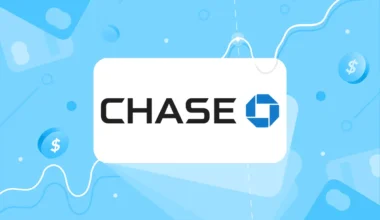If you’re earning money as a babysitter, it’s important to understand how to handle your income during tax season. Whether babysitting is a part-time gig or a more consistent source of income, reporting it accurately can help avoid complications with the IRS. Here’s a complete guide to claiming babysitting income on your taxes.
Do Babysitters Need to Pay Taxes?

Yes, the IRS considers all earned income, including money earned from babysitting, as taxable. Even if you babysit occasionally, you’ll need to report your earnings if you make over a certain threshold. If your total income from babysitting is above $400 for the year, you’ll need to file taxes as self-employed.
Steps to Reporting Babysitting Income
Step 1: Determine if You’re Self-Employed or an Employee
Understanding your employment status is crucial. If you manage your clients, set your own hours, and provide services independently, you’re typically considered self-employed. If you work regularly for one family in their home, you might be classified as their employee, which could impact the forms you file.
Step 2: Use Schedule C for Self-Employment Income
Self-employed babysitters will generally need to file a Schedule C with their tax return to report income and expenses. Schedule C allows you to list all income received from babysitting as well as any expenses you had related to the job, helping to lower your taxable income.
Paying Self-Employment Tax
As a self-employed individual, you’ll be responsible for paying self-employment tax, which covers Social Security and Medicare. The current self-employment tax rate is 15.3%. Unlike a traditional job where the employer pays a portion, self-employed workers must pay the full amount, both as the employee and employer.
Filing Requirements and Thresholds
For self-employed individuals, the IRS requires tax filing if your income is over $400. Babysitters who cross this threshold must report their earnings, regardless of age. Not reporting income over this amount can lead to IRS penalties and complications down the road.
Common Tax Deductions for Babysitters
To reduce your taxable income, you can claim eligible deductions, such as:
- Supplies: Toys, books, or snacks bought for the children in your care.
- Home Office Deduction: If you offer babysitting services from your home, you may be able to claim part of your home expenses.
- Mileage: Driving to and from babysitting jobs can be claimed as a business expense. Keeping an accurate log of your mileage will be helpful for claiming this deduction.
Potential Tax Credits for Babysitters
Babysitters may qualify for certain tax credits, especially if they’re in a lower income bracket. These include:
- Earned Income Tax Credit (EITC): This credit is available to individuals with lower income levels and can be especially helpful if babysitting is your primary job.
- Child and Dependent Care Credit: If you have dependents of your own, you may be eligible for this credit.
What to Do if You’re Paid in Cash
Cash income is still taxable, and it’s essential to report it. One easy way to keep track is to maintain a simple log or ledger where you note down the amounts, dates, and clients. This will help you stay organized and prepared in case of an IRS audit.
What Happens if You Don’t Report Babysitting Income?
Failing to report income from babysitting can lead to penalties, including fines and interest on unpaid taxes. In some cases, the IRS may conduct an audit. To avoid these risks, it’s best to report all income accurately and maintain clear records.
FAQs
Do I need to report babysitting income if I am under 18?
Yes, babysitting income needs to be reported if it meets the minimum threshold, regardless of age.
What if I only made a small amount from occasional babysitting?
If you earned less than $400, you may not need to file self-employment taxes, but you should still report the income on your tax return.
How can I keep records of cash payments?
Using a simple notebook or an online bookkeeping tool can help track income and expenses, especially for cash payments.
Conclusion
Understanding how to handle taxes for babysitting income can help you avoid penalties and potentially lower your taxable income with eligible deductions. Whether it’s a one-time job or a steady side hustle, following these guidelines can simplify your tax filing and keep you in good standing with the IRS. If you have any doubts, consulting a tax professional is always a good idea.






